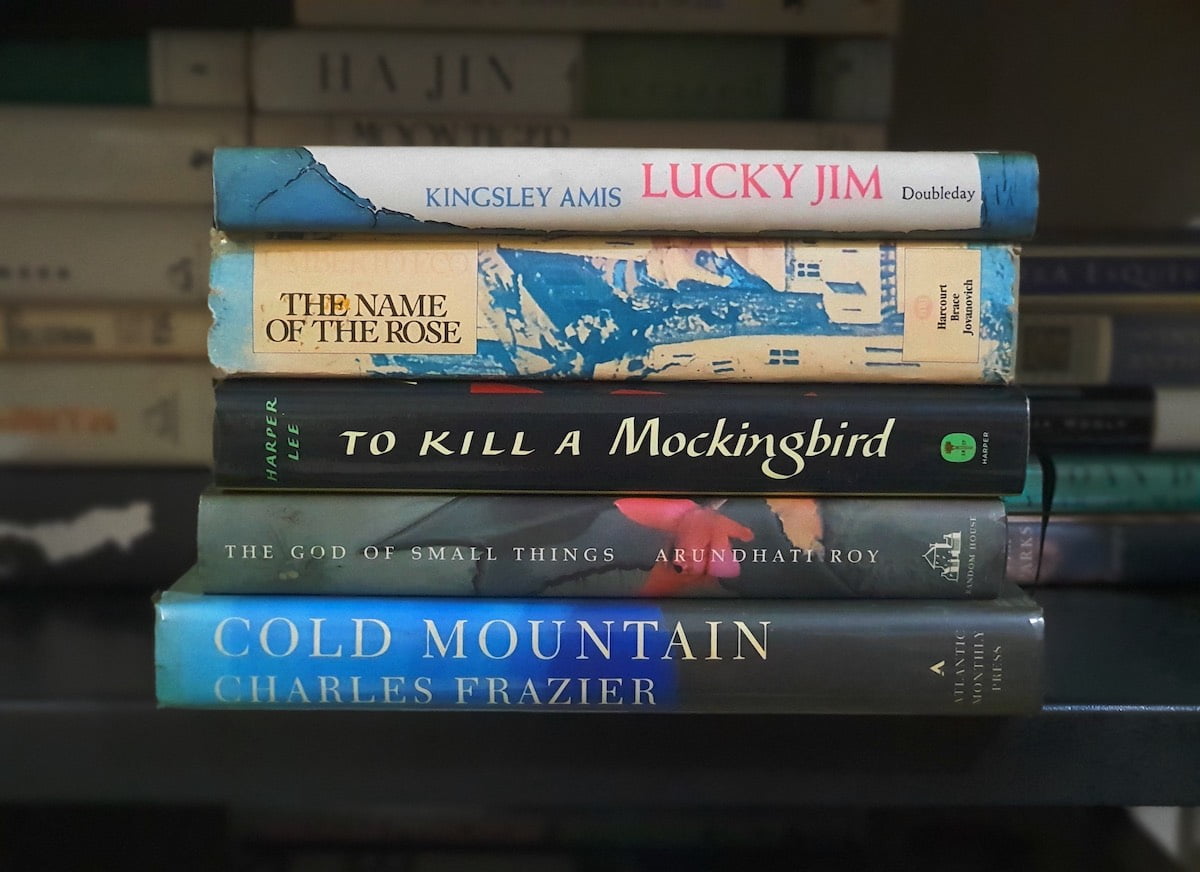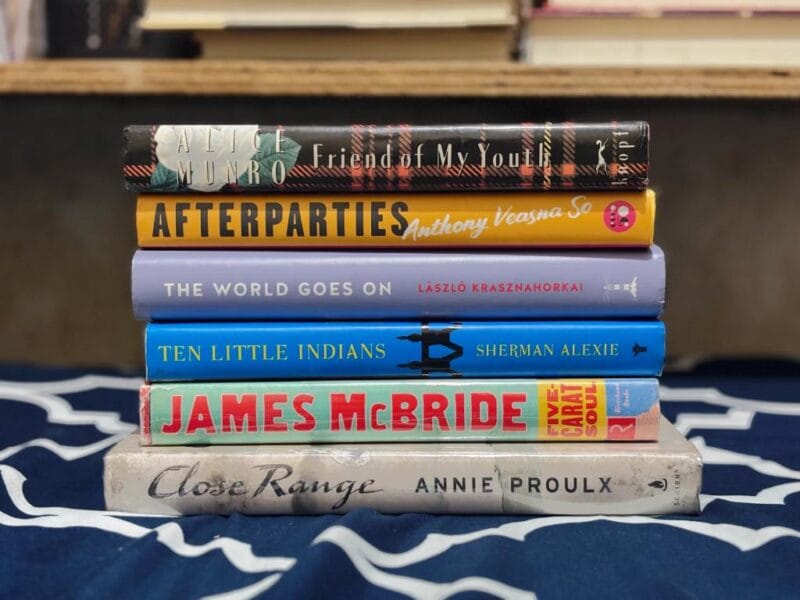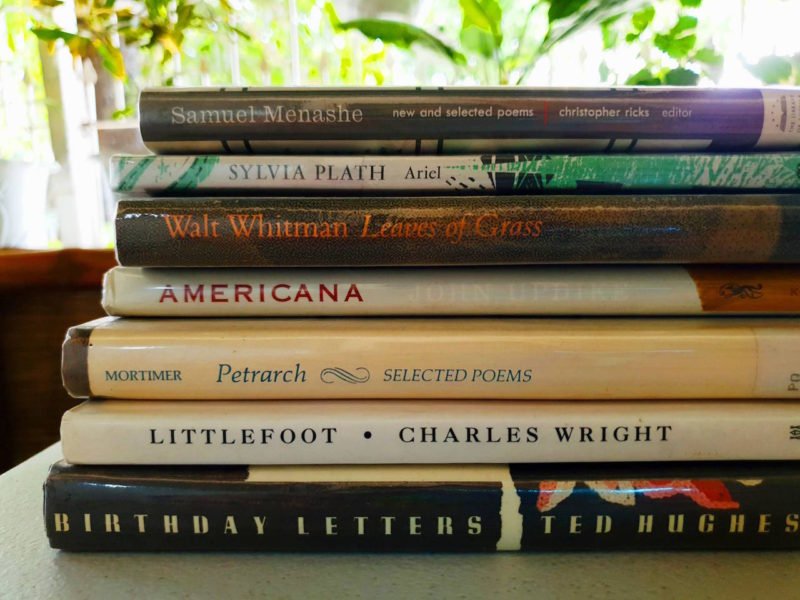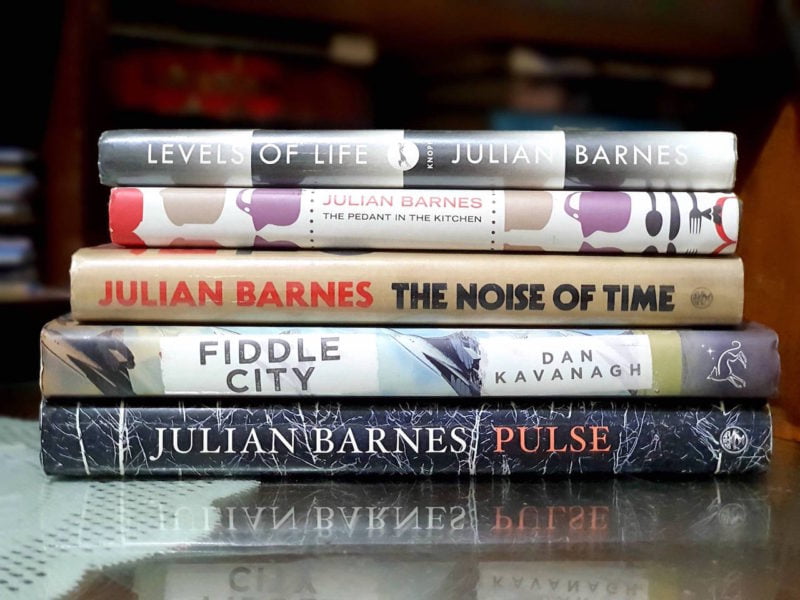In this blog post, we look at five compelling debut novels by exceptional authors who have received acclaim for their first literary efforts. These award-winning books not only captivate readers with their fresh perspectives and unique storytelling, but also serve as a testament to the boundless talent and creativity of first-time authors.
From thought-provoking narratives that challenge societal norms to heart-wrenching tales that explore the depths of human emotions, these debut novels have the power to transport us to unfamiliar worlds and leave an indelible mark on our souls.
One such novel revolves around the comedic misadventures of a charmingly flawed protagonist, navigating the complexities of academia and social norms.
Another transports us to a medieval abbey, where a mesmerizing blend of history, mystery, and philosophy unravels against the backdrop of a riveting murder investigation.
Furthermore, another story leads us to 1930s South, where we witness a profound exploration of justice and morality in a racially divided town, as seen through the eyes of a young girl learning invaluable life lessons from her father.
Additionally, we are immersed in the lush tapestry of a family saga, where the intricate interplay of love and loss, cultural clashes, and social hierarchies creates an unforgettable literary tapestry.
Lastly, we traverse a landscape of war and self-discovery, as a soldier embarks on a perilous journey to reunite with his beloved against the backdrop of the American Civil War.
Lucky Jim (1954)
Lucky Jim, Kingsley Amis’s debut novel, is set in 1950s England and focuses on the struggles of Jim Dixon, a disillusioned university professor. It exposes the absurdities of academia and societal expectations through adroit wit and astute observations. Its award-winning status, including the Somerset Maugham Award, attests to the book’s enduring literary merit and its capacity to entertain and provoke thought.
The impact of Lucky Jim stems from its sharp social commentary and relatable characters, which capture the essence of post-war Britain. It earned a position in the literary canon due to Amis’s dexterous use of satire and comedic talent, resonating with readers due to its timeless themes and insightful depiction of human foibles. As a classic of British literature, Lucky Jim continues to be celebrated for its wit, incisiveness, and lasting relevance.
The Name of the Rose (1983)
The Name of the Rose by Umberto Eco is an award-winning historical mystery book set in a 14th-century Italian monastery that examines issues of knowledge, power, and truth. Brother William of Baskerville, a Franciscan friar, and his apprentice investigate a sequence of fatalities, demonstrating the perils of fanaticism and the need to conserve knowledge. Eco’s attention to detail, sophisticated narrative, and varied characters elevate it to a literary masterpiece.
As Eco’s debut novel, published in Italian as Il nome della rosa (1980), The Name of the Rose won prestigious awards, among them the Strega Prize and Prix Medicis Étranger. Its blend of detective fiction, historical fiction, and literary theory showcases Eco’s erudition and storytelling abilities, while his exploration of reason versus faith resonates with readers, thus becoming a testament to his intellectual prowess and setting the stage for his subsequent acclaimed works.
To Kill a Mockingbird (1960)
To Kill a Mockingbird, a powerful and well-liked first novel by Harper Lee, examines themes of racial injustice, moral strength, and the loss of innocence. In a small Southern town in the 1930s, Scout Finch observes her father defending a black man who has been falsely accused over the course of the story. Although the novel’s analysis of complex socioeconomic issues proves its literary merit, Lee’s engaging prose and believable characters have held readers’ attention to this day.
Despite being Lee’s first novel, To Kill a Mockingbird garnered widespread recognition, winning the Pulitzer Prize for Fiction in 1961. Its universal appeal and ability to provoke thought and emotion have solidified its status as a classic work of American literature. By challenging societal norms and inspiring introspection, the book continues to leave a lasting impact and remains a testament to Lee’s remarkable writing talent and the enduring power of storytelling.
The God of Small Things (1997)
The God of Small Things by Arundhati Roy is a powerful novel that delves into love, caste discrimination, and societal constraints through the tragic story of a family in Kerala, India. Roy’s exceptional literary talent shines through her lyrical prose, intricate narrative structure, and vivid imagery. Despite being Roy’s debut novel, it received widespread acclaim and won the prestigious Man Booker Prize in 1997, underscoring its significance and establishing it as a timeless work of literature that fearlessly tackles challenging themes.
The God of Small Things is a profound and thought-provoking read due to the novel’s honest and compassionate examination of its characters’ struggles as well as its masterful narration. Roy’s evocative descriptions and painstaking attention to detail demonstrate her ability to capture the complexities of human emotions and the oppressive forces that shape lives. It functions as both an example of the transformative force of narrative and a testament to Roy’s extraordinary aptitude as a first-time novelist. The God of Small Things is a timeless literary masterpiece that captivates readers with its beauty, profundity, and examination of life, love, and the human condition.
Cold Mountain (1997)
Cold Mountain is Charles Frazier’s first novel and tells the gripping story of Inman, a wounded Confederate soldier who deserts the army to return to his love, Ada Monroe, during the American Civil War. Frazier’s exquisite prose, vivid descriptions, and compelling characters showcase his literary prowess, exploring themes of love and resilience. Despite being his first novel, Cold Mountain received widespread acclaim and prestigious awards, solidifying its significance in the literary world.
Readers are transported to the war-torn landscapes of the nineteenth-century South because of Frazier’s excellent writing and attention to detail. The novel’s realistic historical context, beautiful language, and complex characterization combine to produce a gripping tale that has a strong emotional resonance. Cold Mountain’s critical accolades, including the National Book Award for Fiction, have established Frazier as a renowned author and continuously validated the novel’s ongoing significance, elevating it to the literary canon.
Memorable Quotes
Doing what you wanted to do was the only training, and the only preliminary, needed for doing more of what you wanted to do.
Page 150, Lucky Jim by Kingsley Amis
True learning must not be content with ideas, which are, in fact, signs, but must discover things in their individual truth.
Page 317, The Name of the Rose by Umberto Eco
Mockingbirds don’t do one thing but make music for us to enjoy. They don’t eat up people’s gardens, don’t nest in corncribs, they don’t do one thing but sing their hearts out for us. That’s why it’s a sin to kill a mockingbird.
Page 103, To Kill a Mockingbird by Harper Lee
Chopping knives were put down. Vegetables were abandoned, half cut, on huge steel platters. Desolate bitter gourds, incomplete pineapples. Colored rubber finger guards (bright, like cheerful, thick condoms) were taken off. Pickled hands were washed and wiped on cobalt-blue aprons. Escaped wisps of hair were recaptured and returned to white headscarves. Mundus tucked up under aprons were let down. The gauze doors of the factory had sprung hinges, and closed noisily on their own.
Page 163, The God of Small Things by Arundhati Roy
At first gesture of morning, flies began stirring. Inman’s eyes and the long wound at his neck drew them, and the sound of their wings and the touch of their feet were soon more potent than a yardful of roosters in rousing a man to wake. So he came to yet one more day in the hospital ward. He flapped the flies away with his hands and looked across the foot of his bed to an open triple-hung window. Ordinarily he could see to the red road and the oak tree and the low brick wall. And beyond them to a sweep of fields and flat piney woods that stretched to the western horizon. The view was a long one for the flatlands, the hospital having been built on the only swell within earshot. But it was too early yet for a vista. The window might as well have been painted grey.
Opening paragraph, Cloud Mountain by Charles Frazier
Further Reading
What makes a great debut? by Symeon Brown, The Bookseller
Never too late: over-50s urged to write fiction with prize for debut novel by David Barnett, The Guardian
Authors Who Won The Booker Prize with Debut Novels, The Booker Prize, Youtube
Why we’re obsessed with debut novels by Jessie Thompson, Independent




